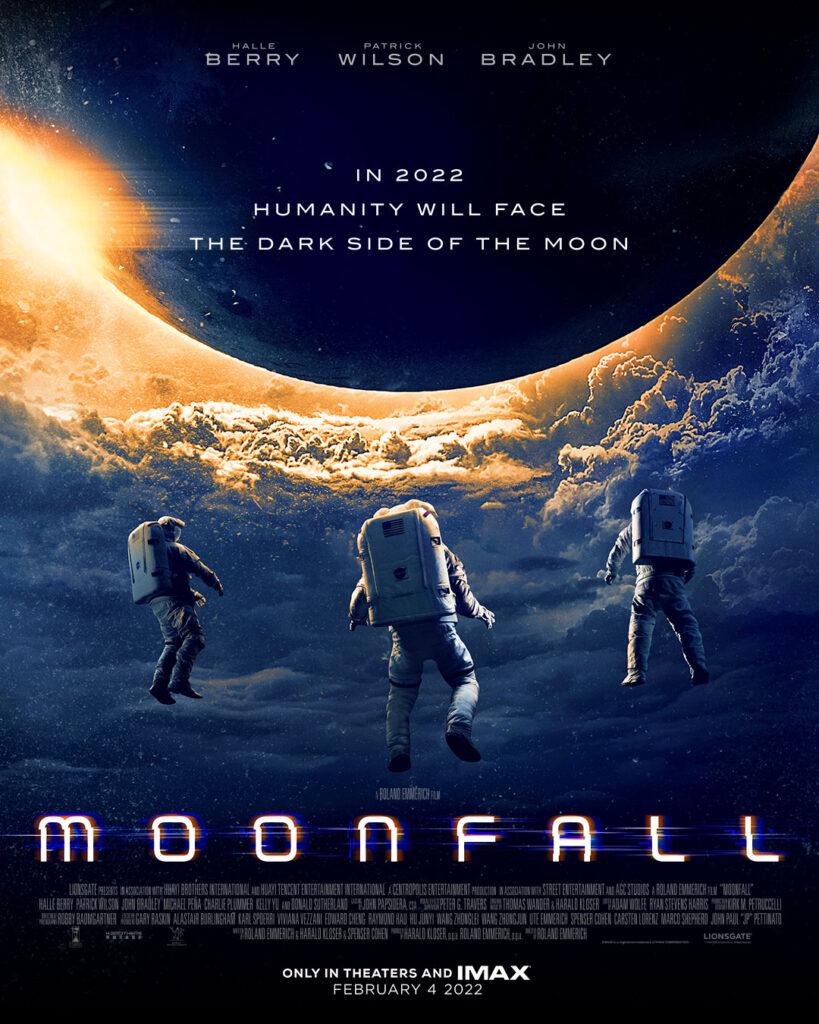★☆☆☆☆
If “Don’t Look Up” and “Interstellar” had an estranged child, “Moonfall” would struggle to even pass as its rip-off sibling.
Starring Halle Berry and Patrick Wilson, “Moonfall” aimed to break the box office with big names and the allure of science fiction drama, but it utterly failed. With a budget of over 140 million dollars, audiences expected the next big intergalactic cult classic, yet the end product could not have been more disappointing.
The opening scenes of the movie are generic and predictable, with a likable yet brooding male astronaut named Brian Harper (Wilson), flirting with his obviously attractive (and married) partner Jo (Berry), all while floating above a horribly digitized Earth.
Almost instantly, the believability of the plot is thrown into question when an alien life form with the appearance of a cloud attacks the ship, leaving the astronauts to abort their mission and return home. In typical space drama movie fashion, our favorite moody astronaut hero tries to get the American people to believe his story about the attack, and big shocker … NASA covers it up!
Fast forward ten years, a fact the audience must infer as there is no indication of time passage, this sentient cloud begins causing problems in space. The first person to notice these problems is none other than a basement-dwelling conspiracy theorist archetype named K.C. Houseman (John Bradley). Houseman takes it upon himself to share this information with the has-been astronaut Brian, who now is a deadbeat divorced father struggling to raise his son.
The first sign of the film’s poor writing appears when it reveals that all of the astronauts from the original mission had left their families upon returning to Earth. This odd story choice left room for many strange plot holes and awkward lines, including multiple instances where countless young children ask their parents questions like, “Was daddy losing his job?” or “Why did we lose the house?” simply to add emotional appeal to the plot.
Moving away from the unnaturally written script, the plot has major issues regarding timing. Once viewers learn that the sentient cloud force is causing the moon to veer off orbit, not even ten minutes later, we see a landscape complete with a massive moon about to touch Earth’s surface. The three-week deadline given until this catastrophic event is compressed into about three days. Giant tidal waves start to destroy the continental United States, but obviously disasters can only affect California and New York, so expect to see an abundance of shots depicting dilapidated parts of the Chrysler building in random locations.
In order to save the world, Brian and Jo team up with the conspiracy theorist to go to the moon and “kill” their mysterious cloud-esque enemy. They determine that this being is actually the result of Artificial Intelligence (AI) technology going AWOL at the start of humanity, and thus they must complete their mission without the help of any technology that could be hacked by the rogue AI. At this point, it seems as though “Moonfall” had the potential to be a social commentary, but the writers obviously went in a different direction: lunacy.
Not only is the moon being attacked by this AI, but the moon itself is also revealed to be a hollow formation constructed by humanity’s apparent ancestral alien species. How this is relevant to the pressing issue of the moon’s collision with Earth is completely glossed over, leaving this movie with yet another plot hole the size of the moon.
Though it is unclear whether “Moonfall” was intended to be comedic, the only way to get through all two hours of this film is to treat it as such. Even though watching movies with that one friend who cannot seem to stop talking is usually obnoxious, you would be wise to only watch this movie with someone who can provide such mind-numbing commentary.
The space travel genre is already ubiquitous in the modern film scene, and feigning originality can only go so far when your plot is a mishmash of preexisting films. Unfortunately for director Roland Emmerich, the most memorable parts of his film were not the CGI action shots, but the egregiously overt Lexus ad placements throughout the entire movie.
Unless your cup of tea is terrible movies trying too hard to be insightful, “Moonfall” is a definite skip.














